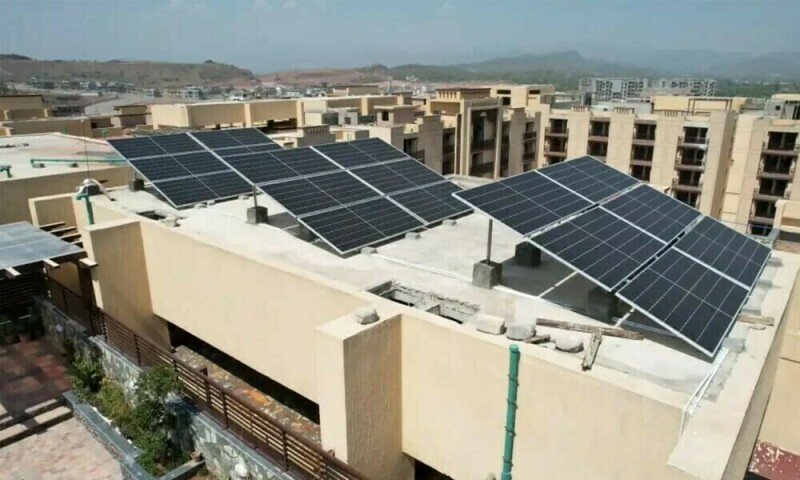The cost of importing solar panels from China to Pakistan is expected to rise, as China may cancel the rebate on solar panels.
Muhammad Faaz Diwan, Director of Diwan International Pvt Ltd, told Business Recorder that the rebate on solar panels was being reduced from 9% to 0%.
“Chinese government is considering to cancel the export rebate on solar panels,” he said.
Diwan stated that starting October 1, the export rebate on solar panels from China was expected to be reduced to 0%.
“If the rebate is eliminated, the price of solar panels in Pakistan could increase by up to 10%.”
The cost of a 585-watt solar panel ranges between Rs17,500 and Rs19,100, depending on the company and the quality of the panel. If the rebate is reduced to 0%, it’s price may rise by 9%.
“Due to floods in Pakistan, solar panel sales have already declined, causing importers to face difficulties in importing them.”
Middle East crisis: solar imports in Pakistan could become costlier on increased freight
According to Diwan, on average 2,500 containers are imported in Pakistan per month, and the cost of one container is Rs100 million.
He claimed Pakistan impoters were selling solar panels at low prices for not having enough funds to pay Customs charges.
“If they [solar panel importers in Pakistan] fail to clear their consignments stuck at Customs, additional harges will apply. Therefore, importers are selling their stock at a loss.”
Meanwhile, Inverex CEO Muhammad Zakir Ali told Business Recorder if the rebate on solar panel exports was withdrawn, the price of a set of 16 panels in Pakistan would rise by around 9%.
“Chinese government may decide about the rebate this month”
Zakir Ali was of the view that the solar season has been relatively slow this year.
“Pakistan’s overall conditions and the floods have led to a decline in solar sales.”
A 15-day strike in Sindh earlier this year against a government plan to build new canals also affected the solar sales, he mentioned.
“Once the country’s political situation and China’s rebate policy become clear, a better picture will emerge.”
Aafaaq Ali Khan, vice chairman of the Pakistan Solar Association (PSA), maintained that the solar energy market in Pakistan was witnessing a severe downturn due to what he called a double-edged impact of reduced demand and increased supply.
“Purchasing power of people has decreased, which is why many Pakistanis are not switching to solar energy,” he said.
Khan pointed out that rural areas, which drive solar demand, have been badly affected by recent flash floods.
“Farmers couldn’t get good prices for their crops. In such conditions, they are not in a position to invest in renewable energy,” he noted.
Khan also stated that the urban solar market has nearly saturated.
“There is very limited space left in urban areas for further solarisation. However, the rural market still has huge potential.“
Pakistan imported 17 gigawatts of solar panels in 2024, while the country has already imported 12 gigawatts in the first six months of 2025, according to PSA vice chairman.
“Importers brought in a large quantity of solar panels expecting the demand to rise, but the market responded in the opposite direction,” Khan said.
He further said while the market had shown some positive momentum up to April this year, it began to decline afterward.
China exports more solar panels to Pakistan than to many G20 nations in 5 years: report
One of the key reasons for the market slump, Khan claimed, was the imposition of General Sales Tax (GST) in the federal budget this year.
“Overall, this year has not been good for the solar market. In fact, this is the worst scenario we’ve ever seen,” he lamented.
Despite the grim outlook, Khan expressed hope that the market would begin to recover in the first quarter of next year.


